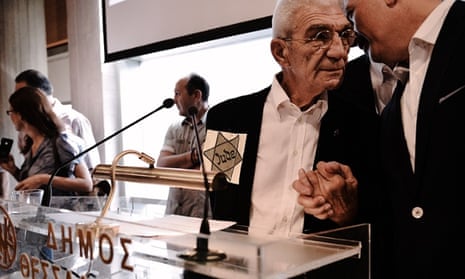Eurocrats haven’t had much positive to say about Greece’s politicians since the country was brought to its knees by the economic crisis. But a European Commission official described Yiannis Boutaris, mayor of Greece’s second city Thessaloniki, as “a beacon”. And other officials from the European Union, the International Monetary Fund and the European Central Bank wrote that under Boutaris’ guidance the city had become an “island of hope” and a “model for all of Greece”.
But Boutaris isn’t a typical Greek political. Born into the country’s oldest winemaking dynasty, he continued his family company’s success until entering politics and letting his children take over. He was elected as an independent mayor in 2010 and re-elected in September. He doesn’t see himself as a politician however, but as a “businessman taking on a new project”.
Boutaris’ policies have had a businesslike practically about them, with a progressive attitude to old grudges that are holding the city back. To boost Thessaloniki’s economy he visited Istanbul to encourage Turkish Airlines to set up flight routes between the two cities. Now 100,000 Turkish tourists visit the city a year. “The Turks are our brothers,” he says.
Tourism has increased from Israel as well, helped by Boutaris speaking out about what he called “the darkest moment in its history” when 56,000 Jews from Thessaloniki (a quarter of the city’s population) were sent to concentration camps during the Nazi occupation, and the 450-year-old Jewish cemetery was destroyed. Boutaris even wore a Star of David at his re-election swearing-in ceremony in protest that the fascist Golden Dawn Party were taking a seat on the council.
The mayor has also made friends in Germany. In 2012 when angry accusations around austerity were shooting between the two countries in language reminiscent of a family feud, Boutaris visited Berlin to learn about effective municipal administration, particularly refuse collection. “Your city is clean, while ours is dirty,” he said. “We need your help.”
Boutaris’ progressive attitude is further illustrated by his support for Thessaloniki’s gay pride parade. “In the society that we want to build, everyone has the right to express himself without feeling any kind of oppression,” he said. “Reactions exist and will exist every time we are before a new reality. From the side of the church and from other organizations, but we cannot do anything about it.”
The recommendations for Boutaris, who has spoken openly about being a recovering alcoholic and has seven tattooos, focused on his open-minded, modern attitude and authenticity. Those who nominated Boutaris described him as a “pioneer”, a “blessing” and “the best thing that ever happened to this city”.
The 72-year-old mayor is not universally popular in his city. He’s faced challenges battling unions to semi-privatise the refuse collection service and over restructuring and streamlining the administration. He “does not fit into distinctions of left/right politics,” said London School of Economics professor Dr Vassilis Monastiriotis when he introduced Boutaris at a lecture earlier this month. “For this reason he has occasionally alienated people on the left and right in the city and beyond”. Boutaris himself as criticised his fellow citizens for taking public services for granted. “We believe everything must be done by the state,” he has said. “But at the same time nobody wants to pay taxes.”
Boutaris has had doubts about whether his administration can achieve fiscal discipline and effective services in Thessaloniki. “I sometimes wonder if l am too romantic hoping that something like this can be achieved in Greece,” he said in an interview in 2012. “But then l tell myself that if l succeed l will have done something very important.”
Sign up for your free weekly Guardian Public Leaders newsletter with news and analysis sent direct to you every Thursday. Follow us on Twitter via @Guardianpublic

Comments (…)
Sign in or create your Guardian account to join the discussion